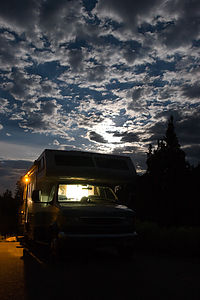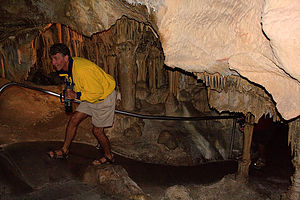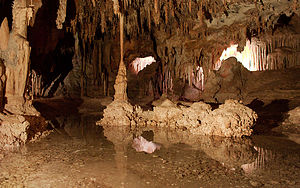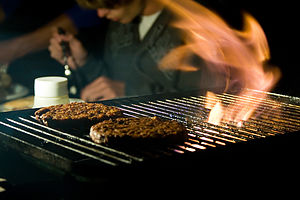- Home
- About
- Map
- Trips
- Bringing Boat West
- Migration West
- Solo Motorcycle Ride
- Final Family XC Trip
- Colorado Rockies
- Graduates' XC Trip
- Yosemite & Nevada
- Colorado & Utah
- Best of Utah
- Southern Loop
- Pacific Northwest
- Northern Loop
- Los Angeles to NYC
- East Coast Trips
- Martha's Vineyard
- 1 Week in Quebec
- Southeast Coast
- NH Backpacking
- Martha's Vineyard
- Canadian Maritimes
- Ocracoke Island
- Edisto Island
- First Landing '02
- Hunting Island '02
- Stowe in Winter
- Hunting Island '01
- Lake Placid
- Chesapeake
- Provincetown
- Hunting Island '00
- Acadia in Winter
- Boston Suburbs
- Niagara Falls
- First Landing '99
- Cape Hatteras
- West Coast Trips
- Burning Man
- Utah Off-Roading
- Maui
- Mojave 4WD Course
- Colorado River Rafting
- Bishop & Death Valley
- Kauai
- Yosemite Fall
- Utah Off-Road
- Lost Coast
- Yosemite Valley
- Arizona and New Mexico
- Pescadero & Capitola
- Bishop & Death Valley
- San Diego, Anza Borrego, Joshua Tree
- Carmel
- Death Valley in Fall
- Yosemite in the Fall
- Pacific Northwest
- Utah Off-Roading
- Southern CA Deserts
- Yosemite & Covid
- Lake Powell Covid
- Eastern Sierra & Covid
- Bishop & Death Valley
- Central & SE Oregon
- Mojave Road
- Eastern Sierra
- Trinity Alps
- Tuolumne Meadows
- Lake Powell Boating
- Eastern Sierra
- Yosemite Winter
- Hawaii
- 4WD Eastern Sierra
- 4WD Death Valley +
- Southern CA Deserts
- Christmas in Tahoe
- Yosemite & Pinnacles
- Totality
- Yosemite & Sierra
- Yosemite Christmas
- Yosemite, San Diego
- Yosemite & North CA
- Seattle to Sierra
- Southwest Deserts
- Yosemite & Sierra
- Pacific Northwest
- Yosemite & South CA
- Pacific Northwest
- Northern California
- Southern Alaska
- Vancouver Island
- International Trips
- Index
- Tips
- Books
- Photos/Videos
- Search
- Contact
Great Basin National Park, NV
Sunday, July 29, 2007 - 11:00am by Lolo
10 miles and 0.25 hours from our last stop - 1 night stay
Travelogue
 Lazy Daze in Great Basin campground One of the reasons we chose to drive the Loneliest Road across Nevada—besides the fantastic scenery—was to visit Great Basin National Park, right near the Nevada-Utah border. We’re always looking to add another National Park to our ever-growing collection, and since the chances of passing through this way again any time soon were pretty slim, it was now or never. The Park’s location, over a hundred miles from the nearest Interstate, makes it one of the least visited parks in the National Park System, which for us is a definite plus.
Lazy Daze in Great Basin campground One of the reasons we chose to drive the Loneliest Road across Nevada—besides the fantastic scenery—was to visit Great Basin National Park, right near the Nevada-Utah border. We’re always looking to add another National Park to our ever-growing collection, and since the chances of passing through this way again any time soon were pretty slim, it was now or never. The Park’s location, over a hundred miles from the nearest Interstate, makes it one of the least visited parks in the National Park System, which for us is a definite plus.
Great Basin’s major attraction is 13,063-foot high Wheeler Peak, the second highest mountain in Nevada. Unfortunately for us, the only way to explore the mountain is via the very steep and winding 12-mile Scenic Drive, which did not allow RVs and trailers. It’s too bad because I really would have loved to have seen the bristle-cone pine forest up near the treeline. They are the oldest living creatures on Earth—some of them more than 4,000 years old. I found it pretty ironic that in 1964, one of these bristle-cone pines, now nicknamed Prometheus, was cut down by a graduate student and a U.S. Forest Service employee for research purposes. The result of their research: they had just cut down the oldest living organism on Earth. What were they thinking?
 Dad on Lehman Cave tour - AJGSince we couldn’t drive up to Wheeler Peak, we had to satisfy ourselves with driving a short portion of the drive to the Lower Lehman Campground, elevation 7,500 feet. There were only 11 campsites at this lovely little campground along a stream, and when we got there 10 of them were already occupied. I hadn’t even thought about the possibility of a full campground in this very remote Park, so I guess we were pretty lucky that there was one left for us. Although it wasn’t the most level of sites, it did have a great view so we were happy. As we sat out on our picnic table eating our dinner later that evening, we were treated to the sight of a full moon rising out over the Great Basin.
Dad on Lehman Cave tour - AJGSince we couldn’t drive up to Wheeler Peak, we had to satisfy ourselves with driving a short portion of the drive to the Lower Lehman Campground, elevation 7,500 feet. There were only 11 campsites at this lovely little campground along a stream, and when we got there 10 of them were already occupied. I hadn’t even thought about the possibility of a full campground in this very remote Park, so I guess we were pretty lucky that there was one left for us. Although it wasn’t the most level of sites, it did have a great view so we were happy. As we sat out on our picnic table eating our dinner later that evening, we were treated to the sight of a full moon rising out over the Great Basin.
Early the next morning before leaving Great Basin, we decided to explore Great Basin’s other major attraction: the Lehman Cave system. Well, actually I really decided to. The boys were tired and quite honestly a little done with cave tours. Through the years they have been so many—Luray Caverns, Wind Cave National Park, Mammoth Caves, Carlsbad Caverns, etc.—that they were pretty much caved-out. However, we managed to extract them from the RV with the promise of no more cave tours after this one. As far as cave tours go, this was a good one, and since there was only one other gentleman on the tour, we got a lot of personal attention from the ranger and learned some things we hadn’t on our previous tours.
Description
 Lehman Cave - AJGGreat Basin is Nevada’s only national park. It was created to preserve and showcase a prime example of the vast Great Basin ecosystem, which occupies nearly 20% of the land area in the continental U.S. It received its name because the rainwater that falls here has no outlet to the sea.
Lehman Cave - AJGGreat Basin is Nevada’s only national park. It was created to preserve and showcase a prime example of the vast Great Basin ecosystem, which occupies nearly 20% of the land area in the continental U.S. It received its name because the rainwater that falls here has no outlet to the sea.
With only 77,000 acres, it is one of the smallest parks in the national park system, and its remote location near the Nevada-Utah border also makes it one of the least visited. Yet despite its small size, it boasts a treasure trove of riches, including:
- the only glacier in Nevada
- 13,063-foot Wheeler Peak, the second highest mountain in the state
- a large forest of 3,000- to 4,000-year-old bristle-cone pines, the oldest living creatures on the planet
- groves of white-barked aspen
- the extensive and fascinating Lehman Caves.
 Burgers on Weber with Tom - AJGA visit to the park usually begins with a stop at the Visitor Center where there are exhibits on the flora, fauna, geology, and history of the park. It is also where you purchase your tickets for the 90-minute ranger-led tour of Lehman Caves. A short paved trail from the Visitor Center takes you down into the caverns where the temperature averages 50°F, and the walls are intricately decorated with stalactites, stalagmites, draperies, and shields that have been formed over millions of years by the oozing and dripping of water.
Burgers on Weber with Tom - AJGA visit to the park usually begins with a stop at the Visitor Center where there are exhibits on the flora, fauna, geology, and history of the park. It is also where you purchase your tickets for the 90-minute ranger-led tour of Lehman Caves. A short paved trail from the Visitor Center takes you down into the caverns where the temperature averages 50°F, and the walls are intricately decorated with stalactites, stalagmites, draperies, and shields that have been formed over millions of years by the oozing and dripping of water.
Another major highlight of the park is the 12-mile Wheeler Peak Scenic Drive, which climbs 3,400 feet from the Visitor Center to the Wheeler Peak Campground (elevation 9.950 feet) at the base of Wheeler Peak, Although the road is paved, it is so steep (8% grade) and winding that it is not recommended for RVs and trailers. Along the drive there are several pullouts where you can stop for views of the Great Basin and Wheeler Peak. At the end of the road is the trailhead for the 8.6-mile (RT) Wheeler Peak Summit Trail, a strenuous but spectacular climb to the treeless summit. An easier, yet still interesting hike, from the Wheeler Peak Parking Lot is the 4.6-mile (RT) Bristlecone Pine Forest Trail that takes you through a grove of ancient trees to a view of an ice field.
There are four developed campgrounds in the park with a total of just over 100 sites (only a few of which can accommodate rigs over 25 feet. None of them have hookups, dump stations, or showers. The four developed campgrounds are:
- Lower Lehman Creek Campground (elevation 7,500) - 11 sites
- Upper Lehman Creek Campground (elevation 7,800) - 24 sites
- Baker Creek Campground (elevation 8,000 feet) - 32 sites
- Wheeler Peak Campground (elevation 9,950) - 37 sites.
- ‹ previous
- 13 of 19
- next ›
Great Basin National Park location map in "high definition"
Javascript is required to view this map.
